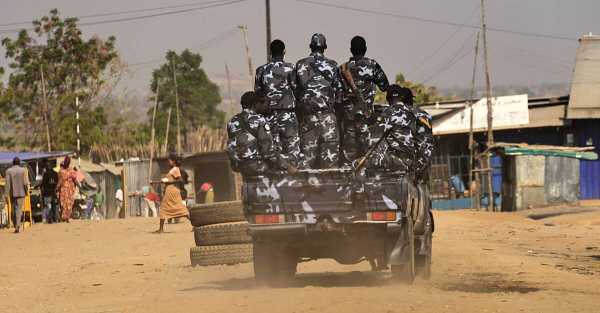
Constitutional law experts met with Prime Minister Andrej Plenkovic on Monday to discuss the widely criticised proposal put forward by his party HDZ to redraw electoral districts ahead of the next parliamentary election in 2024.
Under current rules, Croatia has ten geographic constituencies, each of which sends 14 MPs to parliament. Another eight are elected by ethnic minorities, and another three by the diaspora – bringing the total to 151 seats in the nation’s unicameral assembly.
But while the constitution provides that the number of voters in each district should not be above or below 5% of the country average, the average number of voters in some constituencies grew exponentially in recent years due to mass emigration and low birth rates, reaching an 18% discrepancy compared to the average in some cases.
The government was ordered to finally address the problem following a February 2023 ruling of the Constitutional Court. It was given until September to come up with new rules.
Plenkovic unveiled the new proposed redrawing of constituencies on 25 May, designed so that the numbers of voters in each district closely correspond to the 10% of the entire voter roll, i.e. about 364,000 voters according to the latest 2021 census.
Lack of public debate
Although the new plan is yet to be voted on in parliament, it was widely criticised by both opposition MPs and legal scholars.
Eleven of the country’s constitutional law experts signed an open letter criticising the proposed reform, and on Monday, two of them – Biljana Kostadinov from the University of Zagreb and Sanja Baric from the University of Rijeka – met with Plenkovic to discuss their main objections to the new proposal.
For experts, the main issues concern the lack of transparency in the process of redrawing electoral districts, as well as the decades-long problem of what are widely believed chaotic voter registration records and the inflated numbers of voters.
“We are troubled by the fact that this proposal hasn’t been explained properly. Not only was there no democratic process which would entail expert working groups , they [HDZ party] also presented a map that had no explanation accompanying it,” Kostadinov was quoted as saying after the meeting.
Another issue for scholars are voter registration records – according to the 2021 census Croatia has some 3.9 million people, including more than 3.6 million voters.
It is thought that there are about 3.2 million Croatians over the age of 18, meaning that official records list roughly 500,000 more excess voters than there actually in reality are.
According to Baric, the Constitutional Court should have “finished the job” by abolishing not just the law defining districts but also the current election system altogether.
‘Frankenstein districts’
Opposition MPs also slammed the proposal, as the new map shows that districts in central and eastern Croatia – traditionally strongholds of HDZ and also by far the most affected by depopulation – were simply enlarged to include more territory, thereby eating away parts of other more populous districts.
Speaking in parliament, MP Sandra Bencic from the green-left party Možemo! said in May that the proposal “shows that HDZ is preparing to steal elections” and “rigging districts” to “increase their chances.”
Agreeing with scholars, Bencic slammed the plan for completely ignoring the administrative borders of Croatia’s 21 counties.
“Until now, we at least had three election districts which corresponded to county borders – but now we have none, because each new constituency cuts through at least one county. And there’s also this Frankenstein-like District VII which now groups voters from Kutina and Novska [in central Croatia] with those from [the island of] Pag.
‘Minimal changes’
On the other hand, HDZ party officials say that these changes were meant to be minimal, and say that the new redrawing will see “only 22%” of voters switching election districts.
After the meeting with Baric and Kostadinov, Plenkovic told reporters that although he heard their criticisms, his intention was not to reform the entire election system but only satisfy the ruling of the Constitutional Court.
“As a prime minister of a EU member country, it is important to me that by 30 September we have a new law on constituencies passed, to avoid becoming a country in which it is unknown what the rules are for the next parliamentary election,” Plenkovic was quoted as saying by the state news agency Hina.
Croatia is preparing for what the local media has dubbed a “super-election year” in 2024 – in June it will hold a European election to elect 12 MEPs, followed by a parliamentary election – most likely in July – and then a new presidential election in December.
However, the electoral districts are used only for parliament, as the latter two treat the entire country as a single constituency,
“If we had decided to do a huge election law reform which would involve changing the entire system of electing MPs, we could have done a lot of things – we could have changed the number of seats [per district], the election system, the number of districts, whatever we liked… But we decided against it, because that was never part of the government’s platform,” Plenkovic added.
(David Spaic-Kovacic | EURACTIV.hr)
Read more with EURACTIV

Future Bulgarian government to work on Eurozone, Schengen admission, Ukraine aid
Source: euractiv.com



